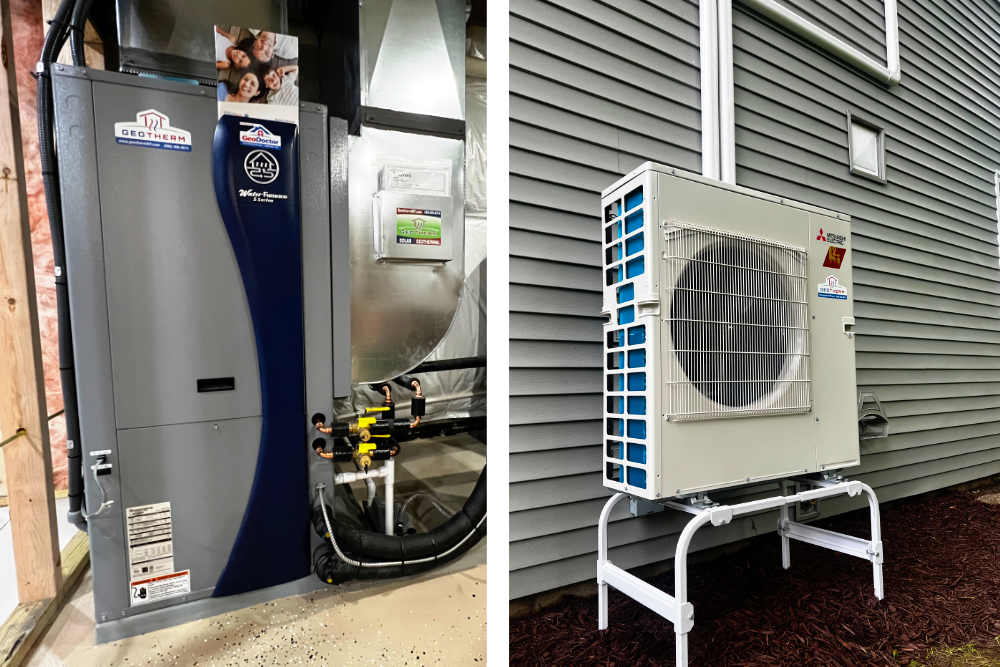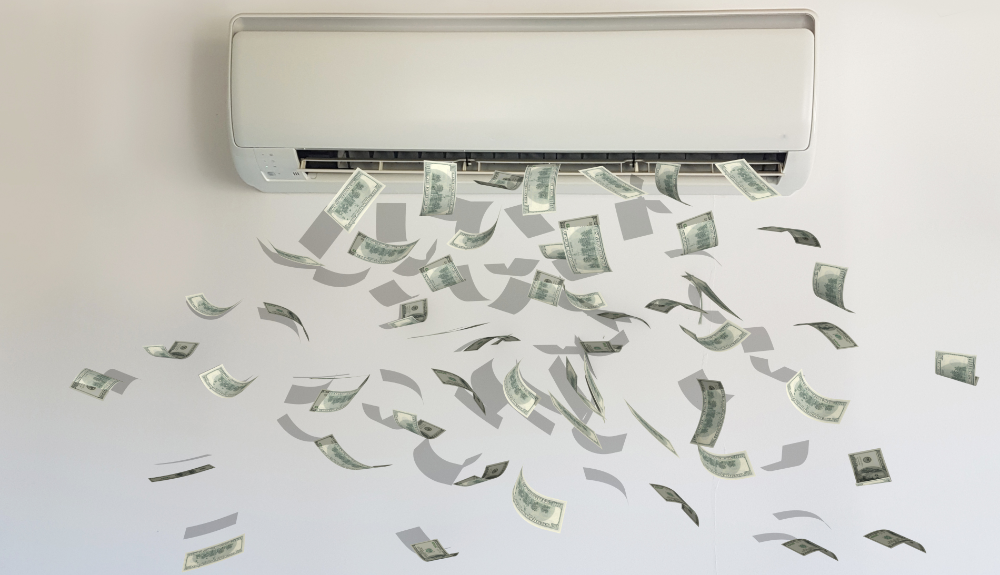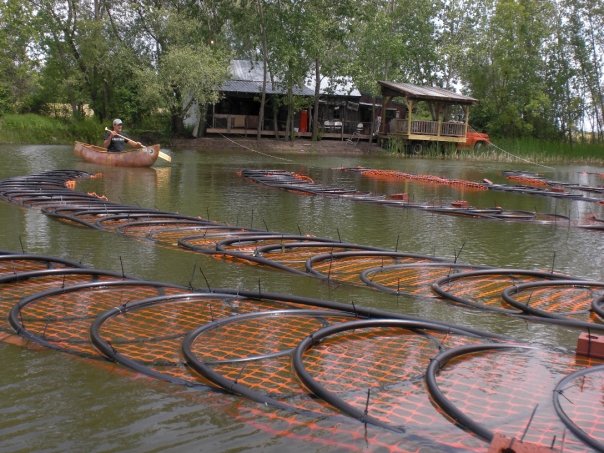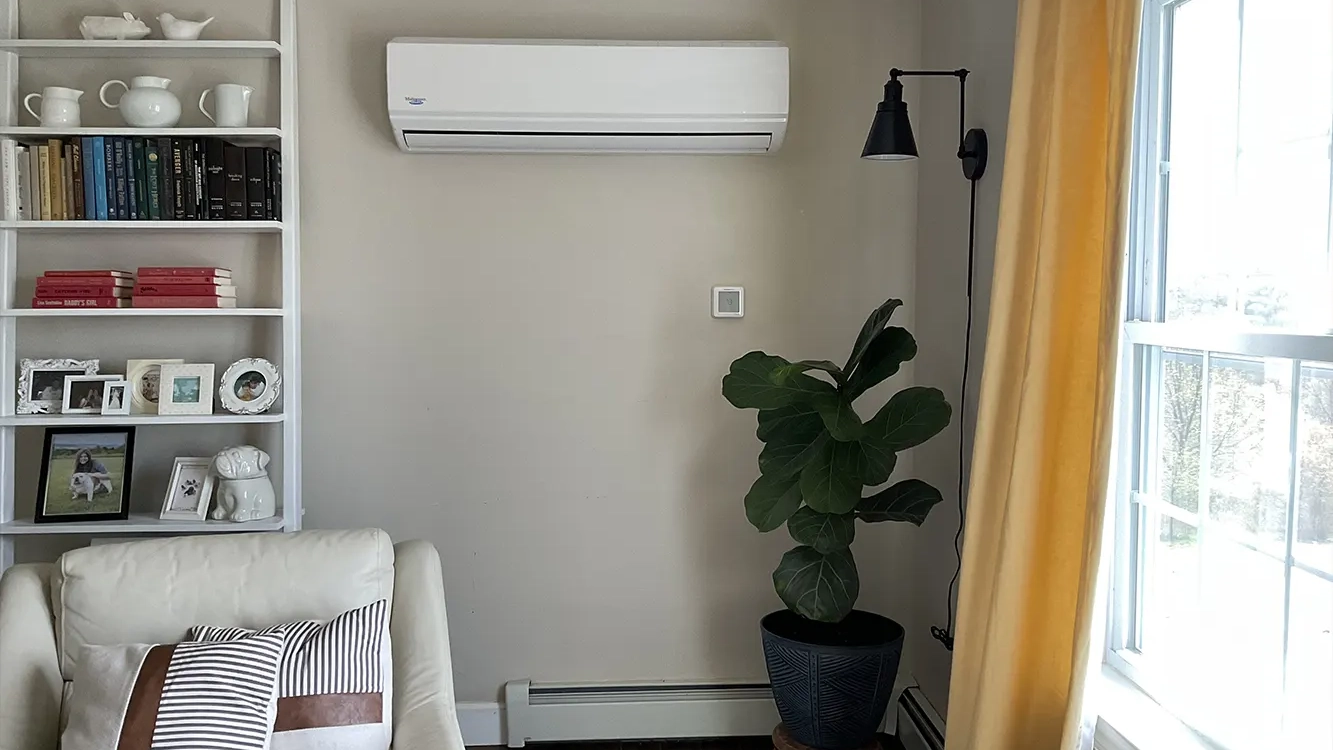Another great question often asked is what is the difference between an air source heat pump and a ground source heat pump (geothermal).
Source of Heat
The first difference is the source of the heat. Air source heat pumps, as the name describes, use an outdoor heat pump similar to a traditional air conditioning unit. It is extracting the heat directly from the air. It then links into a central air handler, or mini-splits (wall cassettes) in your home providing both heating and cooling. A geothermal heat pump uses the heat from the earth collected through loops installed either horizontally, or vertically in the ground. The water that moves through these loops extracts heat from the ground, and then the heat pump extracts the heat from this liquid. This will link into an air handler, wall cassette, or radiant flooring to provide heating and cooling for your home.

Operating Costs
This is a very tough question to answer without looking at two key factors. The first factor is the heating and cooling loads of your home. This is dependent on the home’s size, shape, and insulation. A reputable geothermal installer will always run a heat loss analysis for their customers. It helps estimate annual operating costs and provides the best information to choose an appropriately sized system. Another factor is the temperature you want to keep the home at. Here is an example of the annual operating costs for both an air source heat pump and a geothermal heat pump. This is to do the heating, cooling, and hot water for a 2,000 Ft2 home with 4 people, and the cost of electricity at $0.14 a kWh.
- Geothermal heat pump
- Heating Cost = $727
- Cooling Cost = $58
- Hot Water = $514
- Total = $1,298
- Air Source Heat Pump
- Heating Cost = $1,287
- Cooling Cost = $125
- Hot Water = $831
- Total = $2,244

Cost, Rebates and Tax Credits
Geothermal heat pumps cost more than an air source heat pump initially, however they last longer and have a lower annual operating cost. In New York State geothermal heat pumps have a state rebate tied to the efficiency of the heat pump, generally around $7,000. This comes right off the cost of the system. Your contractor will apply for this when the project is complete and the state will release the money to them. This way your do not have to float that money through the project. In addition, there is a 25% state tax credit ($5,000 max) and a 30% federal tax credit. For example, a system that costs $48,250 is $23,347 after tax credits and rebates are applied. This will do 100% of your heating, cooling, and domestic hot water. Air source heat pumps have a lower installation cost, but cost more annually to operate. Right now, there is a state rebate tied to each air source heat pump based on the efficiency of the heat pump, and a 30% federal tax credit ($2,000 max). For example, a system that costs $30,600 is $22,960 after tax credits and rebates.
Longevity of System
Air source heat pumps are rated to last 15 years, but could go 20 to 25 years, while geothermal heat pumps are rated to last 25 years but could go to 30 plus years. It helps to compare heat pumps to a new car. Get your oil changed, tires rotated, keep it washed, and do the maintenance the manual says at the specific mileage marks, and your car will last a very long time. It is the same with heat pumps. The major difference between the life of an air source heat pump and a geothermal heat pump is that an air source heat pump has outdoor equipment that is exposed to the elements, and more extreme temperatures. A geothermal heat pump has all the equipment inside the home, or underground, creating a longer lasting investment. All that being said, your system longevity is also dependent upon the model you select, and the contractor who installs it.







